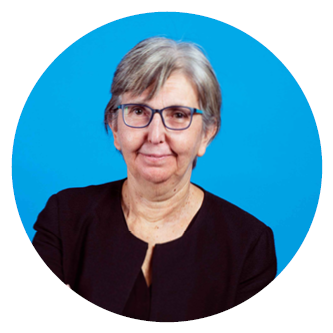CareSearch Director's Wrap for 2024
An article written by Professor Jennifer Tieman, Director, Research Centre for Palliative Care, Death and Dying
It’s only when you stop to reflect on what has happened in a year that you appreciate the breadth and role of CareSearch. 2024 has been a big year where we have worked to support those needing palliative care and those providing palliative care.
At the heart of our work, we continue to highlight evidence and how it can support individuals to make choices and decisions, how it can help health and social care professionals to feel more confident in meeting the person’s care needs, and how it can inform growth and change in services and in systems. While we increasingly focus on the value of translation of evidence, we recognise the need to find, assess and synthesise the evidence that is available to inform our practice. These are just some of the team’s achievements over the last 12 months.
Content and resources
The CareSearch team has ongoing responsibility to regularly harvest the published evidence from the bibliographic databases. We use this evidence to update our existing content or to develop new resources. Our own research also contributes to new evidence that supports the sector.
A revitalised GPapp was released in March. The app brings together guidance on terminal prescribing for specific symptoms and evidence-based information on key care issues such as advance care planning, palliative care case conferences, caring for the dying patient, and assisting families through stages of bereavement. The app redevelopment also prompted an updating of CareSearch’s GP Hub.
The updated Clinical Evidence Summaries have just been released. They are a practical resource for building palliative care knowledge. The summaries relate to professional aspects of care, including ethics, shared decision making and professional wellbeing as well as clinical aspects of care, including stages of care, common symptoms and palliative care emergencies. Working with a clinical advisory group has led to some new elements designed to support their practical use in all health care settings.
The CareSearch team has also brought together new palliative care research tools for paramedics including a dedicated paramedics topic within our Systematic Review Collection. Plus, the 'Quick Search' tool now includes a Paramedics PubMed search.
Partners and projects
We collaborate to build our reach, relevance and impact. In 2024 we have been reviewing and streamlining our partner arrangements to facilitate benefits for health professionals, services and the sector.
We worked with WA Health to develop the WA End-of-Life and Palliative Care Education and Training Framework. The framework and CareSearch resources help clinicians identify learning needs, explore learning pathways and resources for different practitioner groups and settings, and connect to a wide range of learning options.
CareSearch has also supported the development of Palliative Care Connect website. This is a part of a statewide service that provides information and links to palliative care and bereavement supports in South Australia. It provides an information line for people with life-limiting illness, their families, and health professionals as well as access to the Palliative Care Navigators service.
CareSearch was proud to be co-sponsor of the Palliative Care South Australia 2024 Conference & Awards with Research Centre for Palliative Care, Death and Dying (RePaDD), Flinders University.
Spreading the word
Partners are only one way we look to develop new connections. New approaches to small and strategic marketing campaigns are helping us reach new audiences and remind health professionals and services of our work. Specific campaigns for discrete user groups, a new CareSearch LinkedIn account, and our newsletters and blogs help us share our work and new evidence. One example is Palliative Perspectives special series on public health promoting palliative care.
We also went international with an invitation to attend and present at the World Ageing Festival 2024 as a guest of the Lien Foundation. The conference was a vibrant showcase of technology, initiatives, and caring, compassionate service approaches. We were delighted to share CareSearch work and that of our partners as examples of how Australia is navigating palliative care needs in health care and aged care.
We also were happy to participate in the filming of videos produced by the Department of Health and Aged Care to promote national palliative care education resources for healthcare, primary care and aged care.
Understanding impact
While we continue to update resources with the latest evidence, we have been involved in exploring how to assess the impact of digital evidence and resources. To support our project activities, we have completed an impact scoping review as well as having assessed the findings from 32 evaluation studies we have conducted relating to CareSearch and/or palliAGED’s work. These activities have driven the development of a framework that looks at the micro, miso, and macro levels of impact.
The CareSearch team was also pleased to be awarded the Flinders University 2024 Vice Chancellor's Award for Research Impact & Engagement.
We encourage everyone in the sector to visit CareSearch and refresh your understanding of the resources, evidence and tools we have developed that can help you provide care and support those needing palliative care to receive compassionate and comprehensive care.
Authors

Professor Jennifer Tieman BSc(Hons) MBA PhD FAICH
Matthew Flinders Professor
Director, Research Centre for Palliative Care, Death and Dying (RePaDD)